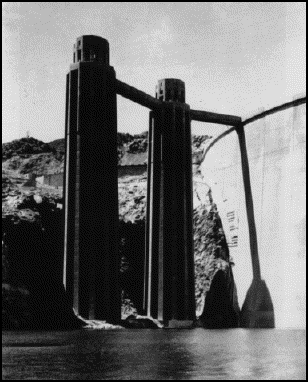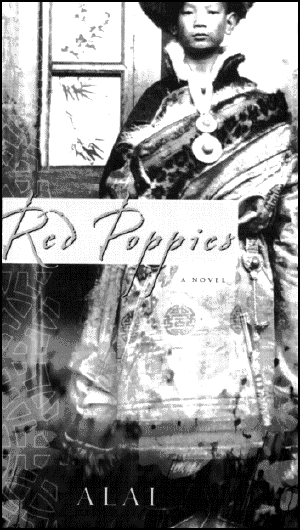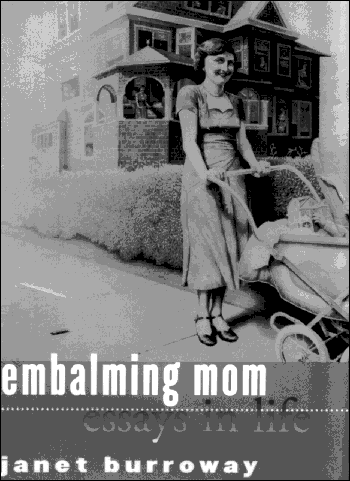Editors'
Picks
Without the soil disturbance associated with plowing and flood irrigation, the natural foods for birds and rodents no longer germinate.
It was a typical, unilateral decision by the Park Service to bring an oases back to its "primitive, unspoiled" state and, ironically, it drove away the wildlife that once populated the area.
 Every Drop for Sale: Our Desperate Battle Over Water in a World About to Run Out, Jeffrey Rothfeder (Tarcher/Putnam).Rothfelder's book is brief --- less than 200 pages --- but it is sure to provide nightmares for those of us who live in desert regions where the water tables are being decimated and water that we have stolen from other regions is running out. Every Drop for Sale is chock-full of wet and woolly information: Canada has the greatest backlog of fresh water in the world, almost 20%. Upward of 10 million deaths per year, mostly among the young and the elderly, are caused by water-related diseases --- chiefly cholera and dysentery. Monster dams like the Aswan High, the Paraguay-Paraná Hidrovia, and the appalling Three Gorges Dam in China wreak havoc on in-place natural water replenishment systems, destroy animal, plant and fish life, and do not in the long run, he tells us, solve flood or water-shortage problems.
Every Drop for Sale: Our Desperate Battle Over Water in a World About to Run Out, Jeffrey Rothfeder (Tarcher/Putnam).Rothfelder's book is brief --- less than 200 pages --- but it is sure to provide nightmares for those of us who live in desert regions where the water tables are being decimated and water that we have stolen from other regions is running out. Every Drop for Sale is chock-full of wet and woolly information: Canada has the greatest backlog of fresh water in the world, almost 20%. Upward of 10 million deaths per year, mostly among the young and the elderly, are caused by water-related diseases --- chiefly cholera and dysentery. Monster dams like the Aswan High, the Paraguay-Paraná Hidrovia, and the appalling Three Gorges Dam in China wreak havoc on in-place natural water replenishment systems, destroy animal, plant and fish life, and do not in the long run, he tells us, solve flood or water-shortage problems.
Overtime, Joseph Millar (Eastern Washington University Press).Joseph Millar is a man who obviously writes poetry out of the stuff of his days, and it ain't the lights reflecting off the gondolas of Venice. It's alimony and child-support and his kid riding over to Safeway "in his death's head earring and mismatched socks," the kid whom he obviously loves and hates, but, he tells us, "We're bound together like sailors, swaying across a dark ocean...a ship with a foreign name."
The Inner Art of Meditation, Jack Kornfield (Sounds True). These six tapes were drawn from a five-week session in Marin County. They consist of brief remarks by Kornfield on the history and traditions of Buddhism, some personal observations, then a guided meditation, followed by feed-back from the audience. He knows his stuff, and he knows how to present it in an informed yet informal manner that can be, in a manner of speaking, enlightening. He also comes across as an open, sincere and sometimes very charming, even funny follower of Buddhist practice.
 Red Poppies, Alai (Houghton Mifflin). The Young Master is supposed to be an idiot, but he is more: an endearing if somewhat picaresque character --- and he's probably as wise as anyone in the book. The writer --- or his translators --- have created a fine work of art, an epic tale told by an idiot who grows up and grows wise and then grows old, and can say, as he is lying on his deathbed:
Red Poppies, Alai (Houghton Mifflin). The Young Master is supposed to be an idiot, but he is more: an endearing if somewhat picaresque character --- and he's probably as wise as anyone in the book. The writer --- or his translators --- have created a fine work of art, an epic tale told by an idiot who grows up and grows wise and then grows old, and can say, as he is lying on his deathbed:
Dear God! If our souls can really be reincarnated, please send me back to this place in my next life. I love this beautiful place. Deities and spirits! My soul has finally struggled out of my bleeding body and is flying upward. When the sunlight flickers, the soul will disperse. There will be nothing but white light.
The Secret Life of Dust: From the Cosmos to the Kitchen Counter, the Big Consequences of Little Things, Hannah Holmes (John Wiley)
This one on your bedtable isn't going to contribute to a restful sleep. Especially with a creepy- The Little Girl Who Was Too Fond of Matches, Gaétan Soucy (Arcade).It's hard to convey the wondrous strangeness of The Little Girl Who Was Too Fond of Matches. Soucy is able to plant clues, drop hints, lay the webs and traps in place so that at one point, you'll be saying --- "Oh, no..." and then, later --- "Don't let it happen..." and then, finally, "Ah so --- now I get it." The author has created a hothouse world which gradually, exquisitely unveils itself to us. The narrator is a modern day Kaspar Hauser: an otherworldly, untaught girl, talking to us (to her diary) in the first person. We soon enough accept Alice's language --- we find on the last page that her name is Alice --- for the rightness of it, and the poetry in it.
From Here to Tierra del Fuego, Paul Magee (University of Illinois). Magee tells us in the preface that this is officially an "ethnohistory of the white colonial subject traveling through time to Terra del Fuego." We have our doubts that it is an "ethnohistory," whatever that might be. It is, rather, a brilliant and insightful and often witty (and often poetic --- and always exotic) discussion of, among other things, why we travel, the purpose of postage stamps, nationalism (and the deadly nature of it), "primitivism," neo-colonialism, fetishes, the tomb of the Unknown Soldier, monuments, surrealism, time-travel, Freud, "remembering the future," Marx ... and the Marx Brothers.
Tomorrow in the Battle Think on Me, Javier Marías (New Directions). These social and sexual adventures from present-day upper-class Madrid would be, in the hands of a lesser writer, no more than a low-class Henry Fielding comedy of errors. But Marías is no mere scribbler. Even though we may think we are on a leisurely ramble, the story is deliciously plotted. Because of the strange characters involved, most of the scenes --- there about ten in number --- are jam-packed with tension. Some critics have compared him to Proust, but, in truth, Marías is probably best seen as a 21st Century version Henry James --- complete with clotted monologues that come, primarily, from the chatty mind --- the very chatty, witty mind --- of the author/narrator. The Museum of Unconditional Surrender, Dubravka Ulgresic (New Directions).
Ugresic has compiled "chapters and fragments" here and she wants us to think of them as being not unlike the contents of the stomach of a walrus, named Roland, of the Berlin Zoo, who died in 1961: A pink cigarette lighter, four ice-lolly sticks (wooden), a metal brooch in the form of a poodle, a beer-bottle opener, a woman's bracelet (probably silver), a hair grip, a wooden pencil, a child's plastic water pistol, a plastic knife, sunglasses, a little chain, a spring (small), a rubber ring, a parachute (child's toy) etc etc. "If the reader feels that there are no meaningful or firm connections between them, let him be patient: the connections will establish themselves of their own accord." She concludes, archly: The question as to whether this novel is autobiographical might at some hypothetical moment be of concern to the police, but not to the reader.
Jigsaw: An Unsentimental Education. Sybille Bedford (Counterpoint). She calls it "A Biographical Novel." She and Mumsie (and young husband Alessandro) lived in Sanary, in southern France in the Golden Age --- between WWI and WWII. Her mother was a charmer, funny, smart, and a morphine addict. They knew the Huxleys; they ate at those proverbial small French fishing village restaurants on the wonderful rich Provençal food; there was always good wine; they would go about in their Deux Chevaux (the earlier model was triangular shaped, almost a three-wheeler) on roads which had few if any cars; they and their friends would laugh and drink and talk and make any of us living 70 years later weak with jealousy that they could have had the golden life that they knew back then. Like the cars of those days, this one is a slow start, but once she gets cranked up --- as soon as Sybille has her first affair and mother picks up her habit --- its hard to stop it. Or us. Embalming Mom, Janet Burroway. (Sightline/Iowa).
Burroway's autobiography takes the form of sixteen essays, ranging all the way from "Embalming Mom" to "Dad Scattered" (what to do with his ashes when they finally got found). After three or four chapters, Burroway becomes someone you and I would want to have over to chew the fat. By the time she gets past building pools and dealing with cats and a writer's worries --- she has us entire. The chapter on Mom is an A+ because we don't know until the end whether she's dead enough to be embalmed.
Embalming Mom, Janet Burroway. (Sightline/Iowa).
Burroway's autobiography takes the form of sixteen essays, ranging all the way from "Embalming Mom" to "Dad Scattered" (what to do with his ashes when they finally got found). After three or four chapters, Burroway becomes someone you and I would want to have over to chew the fat. By the time she gets past building pools and dealing with cats and a writer's worries --- she has us entire. The chapter on Mom is an A+ because we don't know until the end whether she's dead enough to be embalmed.